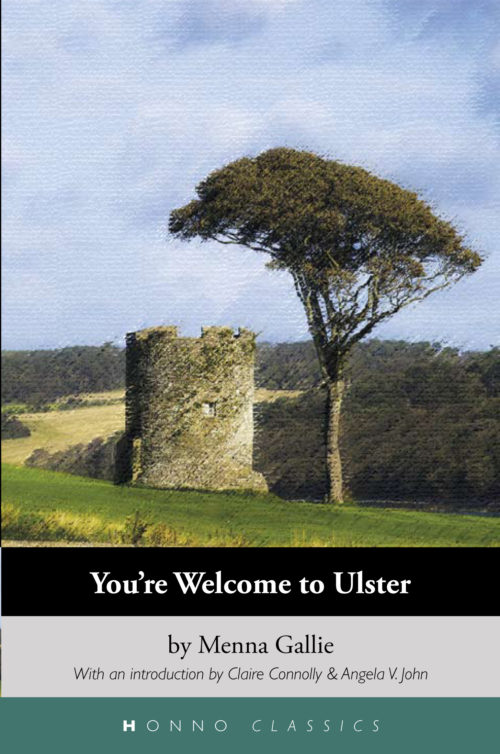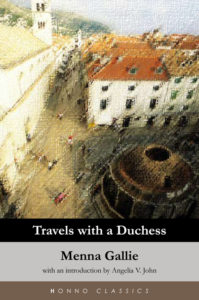March 18th 2019 is the hundredth anniversary of the birth of Welsh novelist, Menna Gallie. She wrote one of the very first novels to engage with the Troubles: You’re Welcome To Ulster.
Set in 1969, it was published by Victor Gollancz in 1970. It is a fascinating double perspective on political agitation in both Wales and Northern Ireland written by a Welsh-speaker who had swiftly got under the skin of Northern Irish society.
Honno Press has re-issued four of Gallie’s novels and this month there is a 25% reduction on their price , using the code mg100.
You’re Welcome To Ulster is an extraordinary achievement in that it so promptly encompasses the political concerns of the moment in which Gallie found herself living in Northern Ireland. It is set in 1969, a very turbulent year.
Gallie uses a love story as a lens through which to portray and critique the mores, political and religious, of Ulster’s Protestants and Catholics but also to describe how these look through a Welsh lens. The closeness of family ties, the impetus towards greater self-determination, the choice of violent means to achieve a political change – these are themes common to both places but, it has to be said, the Welsh come across as more naive than the Ulster folk.
The protagonist is a shocking, and even unsympathetic, character. Her personal circumstances prompt her to go looking for an old flame in Northern Ireland in order to comfort herself in crisis. The fact that he is married is of little concern to her. As is typical of Gallie’s work, the treatment of sex is very frank, for the period, and even for now. The contrast between the protagonist’s straight forward appetites and the convoluted puritanism of the Northern Irish is a constant.
Much of the energy in the book comes from the collision between the outsider who comes to Northern Ireland with a personal agenda and the seismic shifts in the political status quo that she happens upon.
Menna Gallie grasps the tremendous uncertainty of that period. Versions of the actual events of 1968 and 1969 are woven into the plot deftly. One character reads like a portrait of young radical, Bernadette Devlin. There is a concern too to portray the steady rhythms of everyday life.
She gives a good account of the Northern Irish idiom but there are certain habitual false notes which can be grating on a local ear and there is a section about the theatricality of public expression of emotion which, while it’s legitimate as observation from an ‘outside’ character, is protracted beyond its usefulness.
Menna Gallie went to live in Northern Ireland when her husband got a post at Queen’s University in Belfast. I knew the ‘duchess’ of her novel, Travels With A Duchess (1968). This book presents another very robust treatment of desire, that of the duchess’s companion and of the physical messiness of the sex this female character has – the forthright detailing of which sits alongside fascinating descriptive minutiae about women travelling while encumbered with the restrictive clothes and accoutrements of the period and the oppressive expectations of the men they encounter. As in You’re welcome To Ulster we have a no-holds-barred woman paired with one who sticks to her Catholic parameters.
For an insight into Welsh Nationalist politics of the late Sixties, the world of the educated Catholic bourgeoisie of Northern Ireland (rare birds at the time) and what it was like in 1969 to be a Welsh woman determined to have the sexual experience she craved You’re Welcome To Ulster is invaluable.
Historian, Angela V. John is giving a talk about Menna Gallie at Narberth Museum at 7pm on May 15th. Her latest book, Rocking The Boat: Welsh Women Who Championed Equality 1840-1990 (Parthian, 2018) has a chapter on Menna Gallie.
My project with the Centre for the Study of Media and Culture in Small Nations, University of South Wales is on Fiction in Wales and Northern Ireland.


